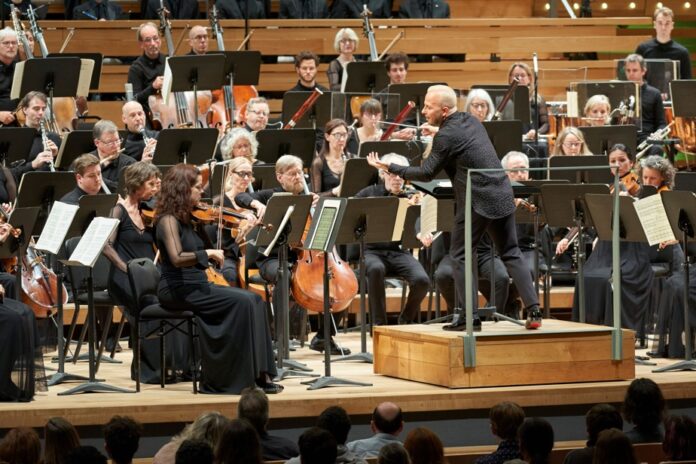The Orchester Métropolitain (OM) announces its 2023-2024 season this Wednesday, a program that its conductor Yannick Nézet-Séguin promises to be more “explosive” than ever. La Presse discussed it with its new CEO, Fabienne Voisin.
The administrator, who arrived here last fall after 11 years at the head of the Orchester national d’Île-de-France, was delighted to present her first season, prepared in close collaboration with Yannick Nézet-Séguin and the conductor of programming, Benjamin Goron. A menu in line with the chef’s concerns to “make room for those who have not had one for too long”.
Of the ten regular programs, four are led by the titular conductor and six by guest conductors, four women and two men. Asked about this strong presence of women on the OM podium (67% of female chefs invited, while there were only 15% of women in the entire profession in the United States in 2016, according to the League of American Orchestras), Ms. Voisin replies that “it is not with percentages that we build a season, it is rather from the desires that we had to work with certain people”.
Le Métropolitain, whose conducting academy included three men and three women, does he not run the risk of leaving young conductors behind? “All choices involve giving up,” concedes the CEO.
The latter describes Nézet-Séguin as “one of the emperors” of the new way of making classical music, “one of the conductors who is watched worldwide for his programming”.
In terms of repertoire, the great works of the orchestral canon are not left out, with Symphony No. 1 by Schumann, Symphony No. 4 by Tchaikovsky, Scheherazade by Rimsky-Korsakov, The Little Mermaid by Zemlinsky (accompanied by sand drawings) , Mahler’s Symphony No. 6 (at the end of the season), Strauss’ Don Juan, Sibelius’ Symphony No. 2 (which will be performed on tour at Carnegie Hall in March and recorded as part of the current complete series), the Symphony No. 7 “Leningrad” by Shostakovich and Symphony No. 5 by Prokofiev.
On the concert side, the OM will twice make room for the piano with Montrealer Bruce Liu in Rachmaninoff’s Concerto No. 2 at the start of the season and Élisabeth Pion with Lūcija Garūta’s Concerto. The violin will be honored with the Serbian Nemanja Radulović (Khatchaturian) and the young Spaniard Maria Dueñas in a recently rediscovered concerto by Johan Halvorsen (1864-1935), a recreation that will be the subject of a film.
French flautist Juliette Hurel (Saariaho and Mozart), percussionist Dominique Vleeshouwers (Eötvös) and artist-in-residence Andreas Ottensamer (Brahms arranged by Berio), the eminent solo clarinettist of the Berlin Philharmonic, who will also conduct a concert, will will also produce solo.
Fans of choral music will also hear Poulenc’s Gloria, Lili Boulanger’s Psalm 130 and Handel’s essential Messiah before Christmas.
As the discovery is dear to the Metropolitan, regulars will be entitled to a creation by a Cree composer from Alberta, in addition to more or less old works from the United States, France, Great Britain, Hungary, Norway, from Latvia, Finland, Chile and Mexico. A single Quebec partition, Alap
Outside the Maison symphonique, there will also be the traditional concerts in the borough, as well as six chamber music recitals with members of the orchestra at the Bourgie hall and collaborations with Passe-Partout, Danse Danse, the Orchester national de jazz de Montréal and the drag queen Barbada (tales for children).
Another significant event: the arrival of the Philadelphia Orchestra with its conductor Yannick Nézet-Séguin on April 19 in Symphony No. 4 by Florence Price and Symphony No. 2 by Rachmaninoff.















